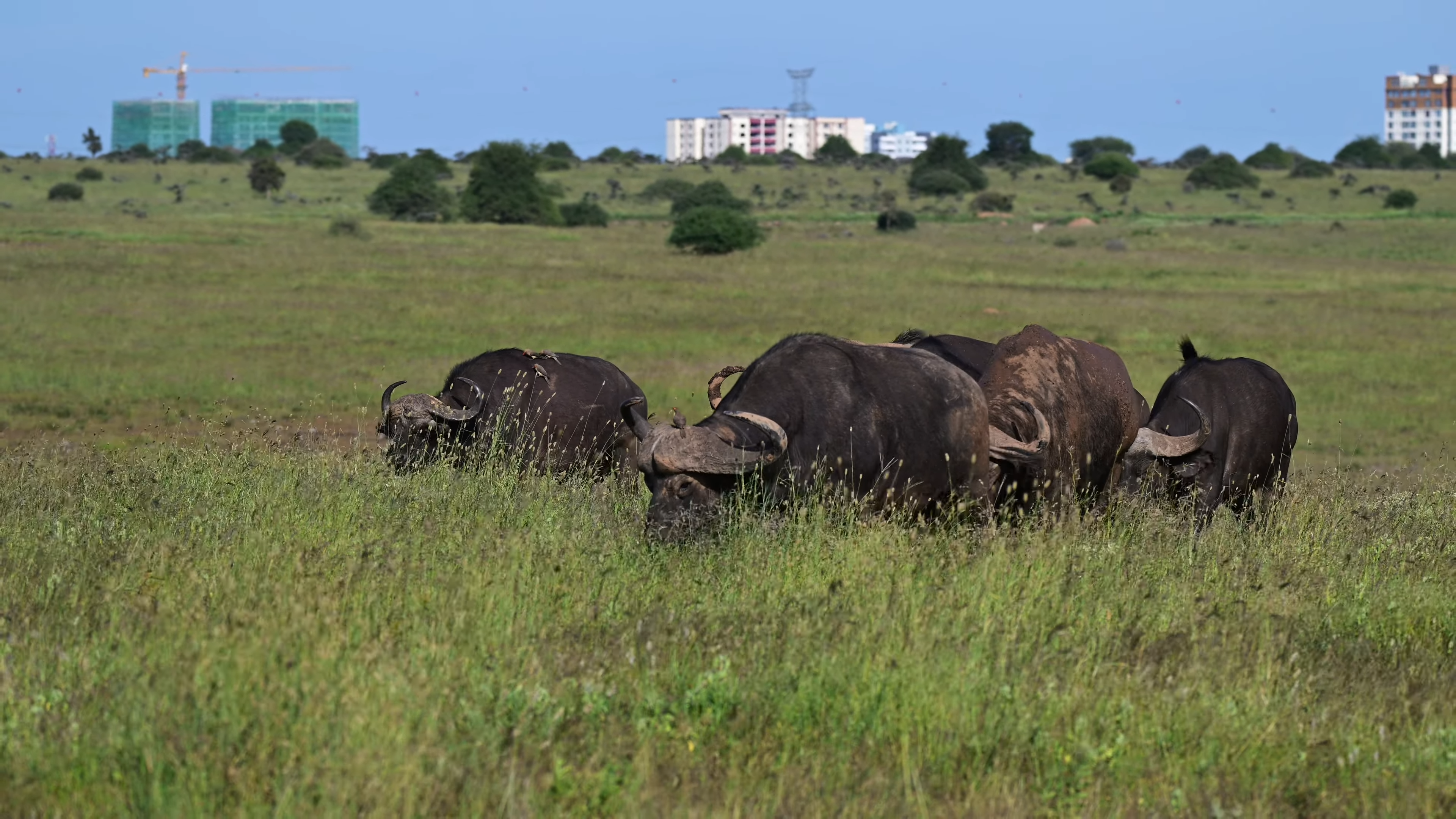Plan Your Budget African Safari Tours: Step-by-Step Insider Tips
Discover how to embark on your dream African safari without breaking the bank! Here’s how you can enjoy breathtaking wildlife experiences, stunning landscapes, and the thrill of safari adventures, all while staying within your budget.
When people think of a safari, luxury lodges and exclusive wildlife experiences often come to mind. However, the great news is that you can plan a budget African tour that offers equally thrilling adventures without draining your savings. With smart planning and the right strategies, your dream safari is more affordable than you think!
Are There African Safari Packages Available Under $5,000?
Yes! It’s absolutely possible to plan a budget African tour under $5,000 and still enjoy a full, authentic safari experience. You don’t have to give up comfort or excitement, just plan smart, choose wisely, and let local Mtembezi African Safaris experts guide you.
With thoughtful planning, $5,000 can cover an incredible 7–10-day safari across East Africa’s most iconic parks, from Kenya’s Masai Mara to Tanzania’s Serengeti and Uganda’s Murchison Falls. You’ll enjoy game drives, scenic landscapes, and close wildlife encounters, all while staying within your budget.
How to Make It Happen
- Travel Off-Season: Visiting between March–May or October–early December can save you up to 30% without missing the best sightings.
- Choose Budget-Friendly Lodges or Camps: Mid-range and eco-lodges offer comfort, great meals, and local charm at far less than luxury prices.
- Join Small Group Tours: Sharing transport and guides reduces costs while adding camaraderie.
- Book Early or Look for Specials: Mtembezi often has seasonal deals and early-bird discounts for travelers ready to plan.
At Mtembezi, we specialize in crafting affordable African safari packages that deliver value and unforgettable moments. From airport pickups to knowledgeable guides, every detail is managed so you can focus on the adventure, not the logistics.
Plan your budget African tour today and discover how easy it is to experience Africa’s wild beauty for under $5,000.
1. Unlock Top Benefits
Dreaming of an unforgettable African adventure but worried about the cost? Think again! Mtembezi Safaris’ budget tours let you experience Africa’s raw beauty without breaking the bank.
When you plan a budget African tour, we bring you closer to Africa’s raw beauty, allowing you to truly slow down to connect with nature without distractions. You’ll experience authentic wildlife encounters, witnessing elephants, lions, and giraffes in their natural habitat, all without the high costs and great travel deals.
Plus, many of our safaris offer unique cultural immersion opportunities, making your African experience even richer. Discover the magic of Africa on a budget-friendly journey!
2. Suitable & Affordable Safari Style
When you plan a budget African tour with us, it’s important to choose a safari type that matches your preferences and budget. Here are some incredible options designed to give you the best of Africa, your way:
- Camping Overland Safaris: For those seeking a raw and authentic experience, stay in tents and get truly close to nature without high accommodation costs.
- Budget & Affordable Lodge Safaris: Prefer a bit more comfort? Mtembezi’s choice of budget lodges offers great value and is often perfectly located near prime wildlife areas for optimal viewing.
- Mobile Tented Safaris: Perfect for eco-conscious travelers, these safaris offer minimal environmental impact while keeping costs low, providing a unique and immersive experience.
3. Day by Day Expectations
When you plan a budget African tour with Mtembezi Safari, knowing what to expect each day helps you prepare and get the most from your adventure. Here’s a typical safari day flow:
- Morning Game Drives: Begin your day at dawn when wildlife is at its most active. It’s the perfect time to spot predators on the move or catch a sunrise over the savannah.
- Lunch in the Wild: Return to camp for a hearty meal or enjoy a scenic picnic surrounded by nature’s beauty.
- Afternoon Activities: Spend the afternoon on a second game drive, try birdwatching, canoeing (where available), or simply relax and soak in the environment at your lodge or tented camp.
Every day brings a fresh opportunity to connect with the wilderness in a relaxed and cost-friendly way.
4. Timing Is Everything
Smart timing is essential when you plan a budget African tour. Choosing the right travel window helps you maximize your experience while minimizing costs. The best months for budget Africa tours in East and Southern Africa align perfectly with the off-peak seasons, giving you incredible value without compromising on magic.
Pro tip for smart travelers:
- East Africa: Plan your adventure between March and May to unlock fantastic deals. This shoulder season features lush post-rain landscapes, fewer crowds, and significantly lower prices on both accommodation and activities.
- Southern Africa: Set your sights on May, June, or November for budget-friendly safaris. These months strike the perfect balance, great weather, excellent wildlife sightings as the dry season shifts, and more accessible pricing before or after the peak tourist periods.
By choosing these savvy travel windows, you’ll enjoy the same breathtaking wildlife encounters and authentic cultural moments, without the high-season price tag. Let us help you plan your dream African safari during this ideal, budget-friendly African journey!
5. Cheap Destinations
When you plan a budget African tour, choosing the right destination can make all the difference. Africa offers incredible value if you know where to go. Here are the top picks that balance breathtaking experiences with budget-conscious travel:
- Kenya & Tanzania: These iconic safari destinations offer affordable access to one of nature’s greatest spectacles Great Migration. With well-established infrastructure and a range of budget lodges, it’s possible to witness big game drama without overspending.
- Namibia: Ideal for adventurous travelers, Namibia stuns with its desert landscapes, towering dunes, and wildlife. It’s also home to many wallet-friendly camps and self-drive safari routes.
- South Africa: Thanks to excellent roads and a strong tourism network, South Africa is perfect for self‑drive safaris. Kruger National Park and other reserves offer accessible, affordable options for independent or guided travel.
Tip: If you’re sticking strictly to a budget, consider skipping ultra-premium destinations like Botswana, where luxury dominates and costs run higher.
Mtembezi Safari helps you unlock Africa’s top sights without a top-tier price. Let’s explore more for less!
6. Stay Longer & Save More
Deeper Immersion, Lower Cost: When you plan a budget African tour that lasts 7 nights or more, you gain more than just extra time; you gain value. At Mtembezi Safari, we encourage longer stays that eliminate the need for frequent, costly transfers, providing a richer and more connected experience with the wild.
By staying in one region for several nights, you reduce travel stress, internal flight costs, and logistical complexity. Instead, you settle into the rhythm of nature, watching animal behavior unfold in detail, something a fast-paced tour just can’t deliver.
Plus, many of our trusted partner lodges reward longer stays with generous extended-stay discounts, including:
- Pay 3, Stay 4 offers
- Complimentary game drives or bushwalks for extended bookings
- Reduced nightly rates after the 4th or 5th night
Let Mtembezi Safari help you craft a well-paced, immersive adventure that goes deeper while costing less. Because sometimes, the longer you stay, the richer and more affordable your safari becomes.
6. Stay Longer & Save More
Deeper Immersion, Lower Cost: When you plan a budget African tour that lasts 7+ nights, you gain more than just extra time; you gain value. At Mtembezi Safari, we encourage longer stays that eliminate the need for frequent, costly transfers, providing a richer and more connected experience with the wild.
By staying in one region for several nights, you reduce travel stress, internal flight costs, and logistical complexity. Instead, you settle into the rhythm of nature, watching animal behavior unfold in detail, something a fast-paced tour just can’t deliver.
Plus, many of our trusted partner lodges reward longer stays with generous extended-stay discounts, including:
- Pay 3, Stay 4 offers
- Complimentary game drives or bushwalks for extended bookings
- Reduced nightly rates after the 4th or 5th night
Let Mtembezi Safari help you craft a well-paced, immersive adventure that goes deeper while costing less. Because sometimes, the longer you stay, the richer and more affordable your safari becomes.
7. Mtembezi’s Exclusive Deals
Your African safari dream is closer and more affordable than you think, especially with Mtembezi Safari’s smart savings strategies! We’re committed to making iconic wildlife encounters and cultural immersion accessible to all, and our special offers are designed to give you the best possible value:
- Adventure on Impulse? Our Last-Minute Mtembezi Specials await! For the flexible traveler, unlock discounts on departures within 30 days. It’s your chance to experience Africa’s magic sooner, for less.
- The Smart Way to Safari: Early-Booking Discounts! Secure your spot and your savings. Book your Mtembezi Safari 6+ months in advance to receive exclusive bonus value on premium lodging. Planning truly pays off!
- Be a Mtembezi VIP! Seasonal Promos: Ready for an amazing deal? We regularly run special flash sales on our popular off-peak trips, offering our deepest discounts. Just ask us for the latest promotions, we’re ready to help you score the best possible price.
Mtembezi Safari: Making your African adventure both unforgettable and remarkably affordable. Join our community and start saving today!
8. Groups, or Book Private Camps
One of the biggest questions when planning a budget African tour is how to maximize your experience without overspending. Mtembezi Safari has a brilliant solution: travel in a group or strategically book private camps.
The secret lies in shared costs. When you gather friends, family, or like-minded adventurers for a Mtembezi Safari:
- You Unlock Group Discounts: Our partner lodges frequently provide special rates for groups, effectively lowering the per-person price and making your safari more accessible.
- Private Camp Dreams Become Reality: That exclusive, secluded private camp experience, often perceived as a luxury, can become a budget-friendly option. By splitting the total cost among multiple travelers, you gain an intimate, tailor-made safari experience at a fraction of the individual price.
Let Mtembezi Safari show you how group dynamics can lead to both significant savings and an even more unforgettable, personalized African journey!
9. Extend Your Adventure with a Beach Escape
Combine safari and seaside on Zanzibar, Lamu, or Mozambique’s beaches for the ultimate budget African tour.
Why choose between adventure and relaxation when you can have both, affordably? With Mtembezi Safari, we believe in making your entire African dream accessible. That’s why we recommend a fantastic way to stretch your budget and enrich your journey: pairing your thrilling safari with a blissful beach escape!
The exhilaration of wildlife spotting is quickly followed by the soothing rhythm of ocean waves. East Africa is perfectly poised for this, boasting accessible and utterly beautiful beach destinations like the spice island of Zanzibar and the historic shores of Lamu.
This combination isn’t just about convenience; it’s about smart budgeting. By integrating these nearby coastal havens into your Mtembezi Safari itinerary, you can unwind and recharge after your intense safari adventure, all without overspending on costly separate trips.
It’s the ultimate way to experience Africa’s diverse beauty, from the wild savannah to the pristine coastlines, ensuring a truly comprehensive and budget-conscious dream vacation.
10. Pack Light and Cut Costs
Avoid baggage fees and de‑clutter your journey. With laundry services at most camps, you can plan a budget African tour with just a carry‑on.
Many safari camps and lodges partnered with Mtembezi Safari offer convenient laundry services. This means you can travel lighter, more efficiently, and without the hassle (and expense) of overpacking or checking bulky luggage.
So, ditch the excess! Pack smart, save money, and enjoy a more streamlined, budget-friendly African journey with Mtembezi Safari, where simplicity meets adventure.
Summary: Plan Your Budget African Tour Today!
You don’t need to spend a fortune to experience Africa’s wild beauty. With smart choices, such as traveling in the off-season, choosing budget-friendly destinations, and keeping an eye on discounts, you can craft an unforgettable safari adventure.
Ready to embark on your budget African safari? Plan your budget African tour & easy budget safari today and start your journey to unlocking the wild wonders of Africa without breaking the bank!

Grazing herds of Buffalos in Nairobi National Park
Plan Your African Budget Tour: Affordable Safaris Await!
Looking to embark on a thrilling African safari without breaking the bank? Discover how you can plan your African budget tour and enjoy incredible wildlife, breathtaking landscapes, and unforgettable moments, all at an affordable price. With expert tips on off-peak travel, budget-friendly destinations like Tanzania.
Accommodation Cost Comparison Table
A table comparing average nightly costs across different safari accommodation types and destinations can provide readers with a clear overview of their options.
Accommodation Costs for Budget to Luxury Safari Stays (2025 Guide)
| Type | Average Nightly Cost (USD) | Typical Locations |
|---|---|---|
| Camping | ≈ $175 | Various national parks |
| Budget & Mid‑range Lodges | $300 – 400 | Bwindi, Queen Elizabeth, Murchison |
| Premier Private Game Lodges | $425 – 700 | Prime safari/conservation areas |
| Luxury Private Game Lodges | $750 – 1,250 | Upscale lodges near gorilla/rare wildlife |
| Top‑of‑the‑Range Lodges | $1,300 – 2,750 | Exclusive luxury camps & private reserves |
| Prices vary by season, park location, group size, amenities, and permit demands (including gorilla and chimpanzee tracking, park entry fees). | ||
Planning Your First Mtembezi Safari: How Long, What to Pack, & When to Book!
Planning your first safari can be overwhelming, especially when it comes to deciding how long your adventure should last. While safaris can indeed be a costly experience, finding the right balance between your budget and the experience you want is crucial for maximizing the thrill of Africa’s wildlife.
To give you a better idea of what you might spend, here’s a rough breakdown of costs for different types of safari experiences:
- Budget African Safari (Camping): Around $150 per person, per night
- Affordable African Safari (Accommodation): Approximately $250 per person, per night
- Mid-Range Safari (Accommodation): Expect about $350 per person, per night
- Luxury Safari (Accommodation): On average, $700 per person, per night, though prices can soar up to $1500 or more.
These costs fluctuate depending on several factors, such as your chosen destination, the season, and whether you’re traveling in a group or opting for a private experience. That’s why it’s essential to plan strategically to get the most value out of your safari.
But how long should your first safari be? While your budget plays a big role in determining the length of your stay, there are a few other factors to consider:
- The Safari Experience: The more time you spend on safari, the greater your chances of witnessing those once-in-a-lifetime wildlife moments. Game drives can be unpredictable, so having extra days allows you to enjoy the unpredictability of nature fully.
- Pacing Yourself: Safari schedules can be exhausting. With early morning game drives and late afternoon wildlife spotting, days are packed with adventure. That’s why for first-timers, a safari lasting 7 to 10 days strikes the perfect balance. It provides enough time to experience diverse wildlife and landscapes without overwhelming you.
If you’re short on time, even a 4 to 5-day safari can be rewarding, particularly if you focus on one or two key areas known for abundant wildlife. But remember, the more days you allocate, the richer your safari experience will be.
We Tried 2 African Safaris (BUDGET vs. LUXURY)
Packing strategically for your first safari is essential. Not only will it keep you comfortable, but it will also help you avoid any extra baggage fees, especially on bush flights with strict weight limits. Here are some expert tips on what to pack:
- Light and Neutral Clothing: Stick to breathable, neutral-toned clothing (khakis, greens, and browns) to blend into the environment and avoid attracting insects. Technical fabrics are highly recommended, as they’re lightweight, durable, and designed to handle varying temperatures.
- Layering is Key: African safaris can range from chilly mornings to hot afternoons. Pack lightweight layers to stay comfortable throughout the day.
- Footwear Matters: Opt for sturdy boots, such as Timberlands, rather than sneakers. They’ll provide better protection and comfort for game drives and walking safaris.
- Camera Gear: Don’t forget to bring a telephoto lens if you want to capture stunning wildlife shots from afar. A bean bag is also a great accessory for steadying your camera during long waits in the safari vehicle.
For a complete, detailed packing guide, check out our Essential Safari Packing List, where you’ll find everything you need to pack for a seamless adventure.
When to Plan Your First Mtembezi Safari:
Planning is vital for securing your ideal safari experience.
- For Peak Seasons & Best Selection: Ideally, start planning 9 months to a year in advance. This gives you ample time to choose your destination, secure top-choice accommodations, obtain necessary park permits, and arrange all logistics with Mtembezi Safari.
- Spontaneous? We Can Still Help! While ample planning ensures smoothness, don’t rule out last-minute trips! We sometimes have special deals available for spontaneous adventurers.
Let Mtembezi Safari take the guesswork out of planning. We’re here to help you craft the perfect first safari – tailored to your budget, desired length, and adventurous spirit!
Ready to build your Mtmebezi budget safari? Get my free quote & insider tips now. (Button: “Get My Free Quote”


